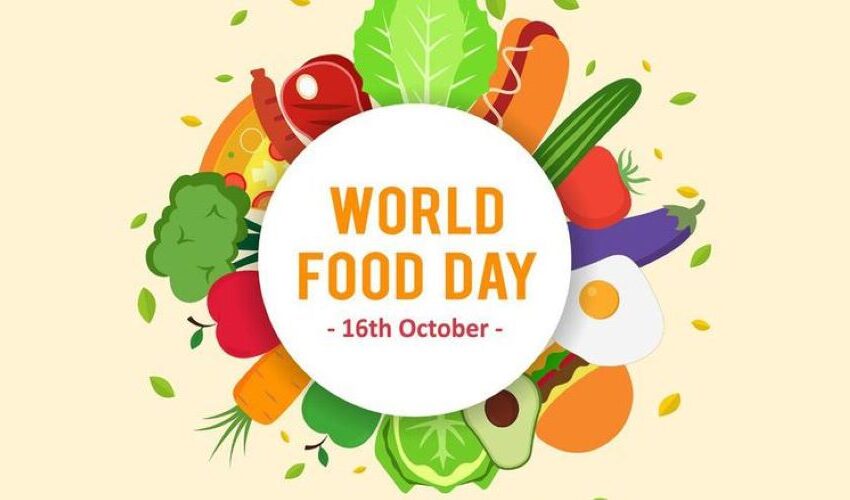Fitelo study shows ‘State of Your Plate’ changes with an increase in your waistline

Team L&M
India’s relationship with food and the impact of it on health is far deeper than just a satisfying meal. A nationwide study among more than 5,000 individuals, conducted by Fitelo, a psychology-driven wellness and fitness platform, reveals that 58 per cent are most concerned about their weight when the size of their clothes increases, while 46 per cent reconsider their eating habits after casual remarks on their body weight by family and friends. Women are more concerned with 61 per cent expressing serious concern about their weight.
The State of Your Plate by Fitelo, released around World Food Day observed on October 16, has found that eating habits have a deep correlation with the behavioural, cultural, social and emotional state of Indians across generations. The survey was conducted across all age groups from 18 to 63 years, and across all Indian States and Union Territories. Millennials and Gen Z constituted 90 per cent of the respondents, while 77 per cent of all respondents identified as women.
The report shows that 57 per cent celebrate achievements with high sugar, high salt and high fat food, such as Samosas, Chole Bhature, Kebabs, and Gulaab Jamun. This finding comes ahead of the festive season in India, with several occasions of family get-togethers ahead. Interestingly, 57 per cent find it most difficult to stick to diets and health goals during family get-togethers.
The survey reveals that 64 per cent of people have never taken a health plan before, while 78 per cent said they would like to take up one.
India’s choice of food to celebrate milestones comes at a time when 1 in 4 Indians suffer from obesity according to the National Family Health Survey-5 (NFHS-5), and the country is infamously known as the ‘Diabetes Capital’ of the world.
Unlike popular perception that celebrities and social media personalities influence health choices, the survey finds that 76 per cent people are influenced by their family, friends, and colleagues when it comes to weight loss programmes.
Fitelo Cofounder & CEO, Sahil Bansal said, “Fitelo was founded with the purpose of helping people lead a healthy life by striking a right balance between the quality of nutrition intake, movement, sleep and lifestyle correction. Every individual is different, and we ensure to guide them on how to lose weight permanently by combining psychology, physiology, and technology. The ‘State of Your Plate’ report not only reveals the food choices of people across the nation, but also sheds light on the connection between food, fitness, and health. We believe that with lifestyle correction, habit transformation, personalized diet charts for weight loss, and a bit of movement, individuals can savour the meals they like while achieving their health goals.”
Fitelo Co-founder & CMO, Mehakdeep Singh said, “The State of Your Plate study is a unique reflection on health and fitness in India. The survey outlines how our food and wellness choices are beyond the arithmetic of apps or tools alone. These decisions are complex, driven by gender, generation, and geography, and shaped by our family, social circle, and emotions. The report points to an interesting insight that even while the world is preparing for a deeper play of Artificial Intelligence, Human Intelligence will continue to be centre stage in day-to-day life, especially when it comes to health. Fitelo has always believed in the right mix of AI and HI in powering people to achieve long-term wellness through simple, powerful, and holistic changes in nutrition and eating habits.”
The report provides interesting insights for individuals, health practitioners, doctors, fitness, and wellness professionals.
Key findings of the survey
Food for the soul: India loves to celebrate with high sugar, high salt and high fat food
Indian snacks with high salt content, such as Samosas, chaat, Pakoda, Pav Bhaji and Chole Bhature are the top choice in northern and western parts of India. Contrastingly, most people from southern states savor high spice and fat food, such as kebabs, grilled meats, biryani, and fried chicken.
Millennials and Gen Z show exceptional discipline towards health goals during office parties and travel, but savour family feasts.
Interestingly, South Indian cuisine trumps Chinese, American, Italian, and Mexican options and for people during celebrations.
Notably, Mithaai is the closest to people’s hearts with 45% of respondents preferring Gulab Jamun, Kheer, and Halwa among others over cakes and pastries when celebrating a special milestone.
State of Mind Affects State of Plate
While millennials and Gen Z talk about snacking healthy, they end up binge-eating out of emotions and to relieve stress.
‘Family get-togethers (57 per cent), Festive Occasions (44 per cent) and stressful times (35 per cent) are the three most difficult moments that lead to emotional eating (they give up their health goals).
As Gen Z enters the workforce and millennials continue to juggle work life balance, 23 per cent people find it a struggle to control urges due to work related stress.
Surprisingly, 33 per cent women feel that they ‘stress-eat’ and lose sight of health goals due to family responsibilities, particularly childcare as compared to only 9 per cent men. On the other hand, 35 per cent of men reported that they are more likely to go astray with their health goals at office parties.
India imitates western fast food trends, but not fitness habits
Over the years, westernized fast food has emerged as India’s most favourite comfort food.
However, unlike the West, Indians do not prefer to indulge in high cardio exercises or sports with most of them preferring light exercises at home (46 per cent) or walks (55 per cent).
Only 3 per cent of all the respondents enjoy swimming as a fitness activity and only 6 per cent of them indulge in sports as an everyday activity.

